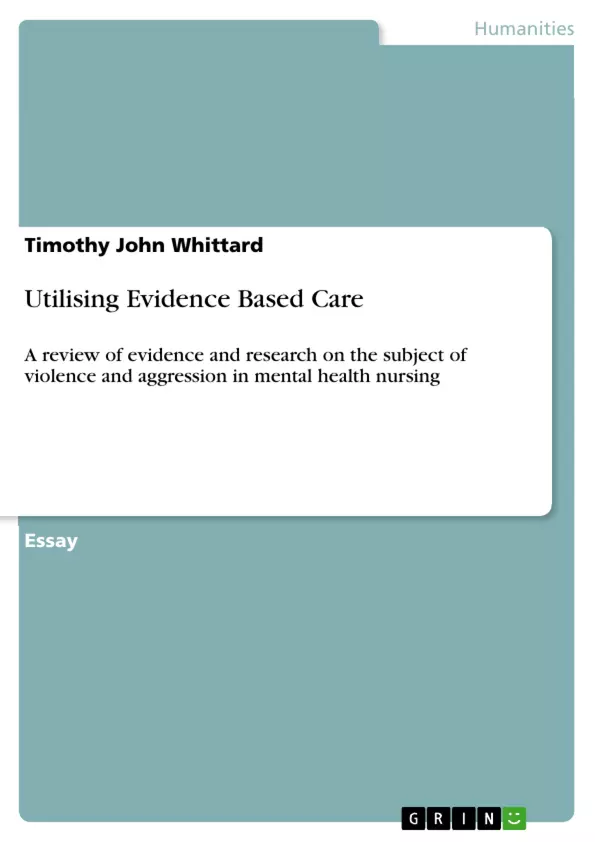This essay aims to critically appraise a range of sources of research evidence pertaining to the management of violence and aggression within an inpatient mental health setting, and also to discuss and explore the limitations of the research, and its implications for clinical practice.
Table of Contents
- Utilising Evidence Based Care
- Defining Key Terms
- Evidence-Based Healthcare
- Literature Search and Selection of Sources
- Critical Appraisal of Primary Research
- Critical Appraisal of Secondary Evidence
- Critical Appraisal of Expert Opinion
Objectives and Key Themes
This essay aims to critically appraise sources of research evidence related to the management of violence and aggression in inpatient mental health settings. It explores the limitations of the research and its implications for clinical practice.
- Prevalence and significance of violence and aggression in healthcare settings
- Definition and application of evidence-based care in nursing practice
- Critical appraisal frameworks and their application to research studies
- Implications of research findings for the management of violent and aggressive incidents in mental health settings
- Importance of clinical guidelines and their role in evidence-based practice
Chapter Summaries
- Utilising Evidence Based Care: The essay introduces the topic of violence and aggression in mental health settings, highlighting its prevalence and the need for effective management strategies. It also introduces the concept of evidence-based care and its importance for improving patient outcomes.
- Defining Key Terms: This section provides definitions for key terms such as "research" and "evidence-based nursing," clarifying their significance in the context of the essay.
- Evidence-Based Healthcare: The essay explores the development and rationale behind the evidence-based healthcare movement, emphasizing its impact on nursing practice and the importance of incorporating research evidence into clinical decision-making.
- Literature Search and Selection of Sources: This section details the methodology used for the literature search, outlining the databases and search terms used to identify relevant research articles. The selection criteria for primary, secondary, and expert opinion sources are also explained.
- Critical Appraisal of Primary Research: The essay presents a critical appraisal of a qualitative pilot study focusing on the subjective experiences of physical restraint for mental health inpatients and staff. It evaluates the research methods, findings, and limitations, highlighting its potential implications for clinical practice.
- Critical Appraisal of Secondary Evidence: This section critically appraises clinical guidelines from the National Institute for Health and Care Excellence (NICE) on the management of disturbed or violent behavior in inpatient settings. It evaluates the guidelines' evidence base, clarity, and relevance to clinical practice.
Keywords
The essay focuses on key topics such as violence and aggression, evidence-based care, critical appraisal, qualitative research, clinical guidelines, and the management of challenging behavior in inpatient mental health settings.
- Citar trabajo
- Timothy John Whittard (Autor), 2008, Utilising Evidence Based Care, Múnich, GRIN Verlag, https://www.grin.com/document/470790



